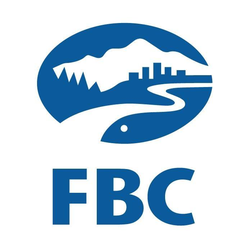
Beneficial Management Practices (BMP)
At a glance
- No Condition
- Unspecified
- Agriculture, forestry, fishing and hunting
- British Columbia
- For-profit business
- Sole proprietorship
- $ 10,000,000 maximum revenue
- All organization sizes
- All groups
Overview
Activities funded
- Upgrading orchard operations to enhance environmental sustainability.
- Transforming manure storage systems to improve farm management practices.
- Implementing measures to reduce environmental risks associated with agricultural activities.
Eligibility
Eligibility for this grant is determined by specific requirements related to environmental and sustainable practices in agriculture.
- The applicant must be involved in agricultural operations within Canada.
- The project should aim to promote environmental sustainability and enhance ecological outcomes in farming practices.
- The applicant should demonstrate compliance with existing environmental regulations and guidelines.
- The project proposal must include a detailed plan for implementing Best Management Practices (BMP) or other environmental enhancements.
- The applicant must show capacity to complete the project within a specified timeframe and budget.
Who is eligible?
- Agricultural producers
- Orchards
- Farms (including livestock and crop production)
Who is not eligible
This grant aims to support agricultural projects focusing on environmental sustainability and best management practices. However, the information provided does not specify which companies or industries are excluded from applying.
Eligible expenses
This grant supports agricultural and environmental projects aimed at enhancing farm operations and reducing environmental impact. The eligible projects focus on implementing best management practices and infrastructure improvements on farms.
- Upgrades to orchards to improve efficiency and fruit production.
- Transformation of manure storage facilities to better manage waste and reduce odor.
- Implementation of environmental risk reduction practices in tree farming.
Eligible geographic areas
This grant is aimed at encouraging sustainable practices among businesses. However, the specific geographical areas eligible for this program are not provided in the current context.
Selection criteria
There are evaluation and selection criteria for this grant. Grant applications are assessed based on the following criteria:
- Alignment with grant objectives and priorities
- Feasibility and sustainability of the proposed project
- Expected impact and benefits for the community or sector
- Detail and clarity of the project plan and budget
- Demonstrated capacity and capability of the applicant to successfully implement the project
How to apply
Eligibility Check
- Review the eligibility criteria of the grant
- Confirm that your business meets all the criteria
Preparing the Application File
- Obtain the required application forms
- Gather all necessary documents (plans, budgets, etc.)
- Write a detailed proposal
Submitting the Application
- Complete the application forms
- Attach all supporting documents
- Submit the application before the deadline
Application Follow-up
- Confirm receipt of the application
- Respond to any request for additional information
- Track the status of the application until the final decision
Receiving the Grant and Implementation
- Sign any agreement or contract related to the grant
- Start the works/projects funded by the grant
- Keep detailed records of expenses and progress
Final Report
- Complete and submit a final report on the use of the grant
- Provide all necessary evidence of achievements and expenditures
Additional information
Here are additional relevant details for this grant:
- The Environmental Farm Plan (EFP) and Beneficial Management Practices (BMP) programs play a crucial role in the context of this grant.
- Environmental sustainability and innovation appear to be key factors influencing funding decisions under this initiative.
- The programs appear to support projects aimed at reducing environmental risks or improving environmental management on farms.
- Publicization of successful projects, such as those in the given examples, seems to be a strategy for promoting the outcomes and benefits of funded projects.
- Projects like those from Allingham Orchards, New Siberia Farms, and Rivershore Trees emphasize upgrades and transformations that have quantifiable environmental benefits.
Frequently Asked Questions about the Beneficial Management Practices (BMP) Program
What is the Beneficial Management Practices (BMP)?
Who is eligible for the Beneficial Management Practices (BMP) program?
What expenses are eligible under Beneficial Management Practices (BMP)?
Who can I contact for more information about the Beneficial Management Practices (BMP)?
Where is the Beneficial Management Practices (BMP) available?
Is the Beneficial Management Practices (BMP) a grant, loan, or tax credit?
Who are the financial supporters of the Beneficial Management Practices (BMP)?
More programs like this

Regional Tariff Response Initiative (RTRI) — British Columbia
Government of Canada
BC Agriculture and Food Export Program
Government of Canada
Genome British Columbia — GeneSolve Program
Genome British Columbia

Agriculture Wildlife Program (AWP)
Government of British Columbia
New Entrant Farm Business Accelerator Program (NEFBA)
Government of British Columbia
Buy BC Partnership Program — Producers, Processors and Cooperatives
Government of British Columbia
Northern Industries Innovation Fund
Northern Development Initiative Trust
ViaSport - Hosting BC
BC Sport Agency